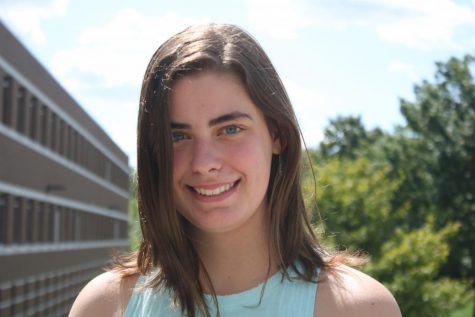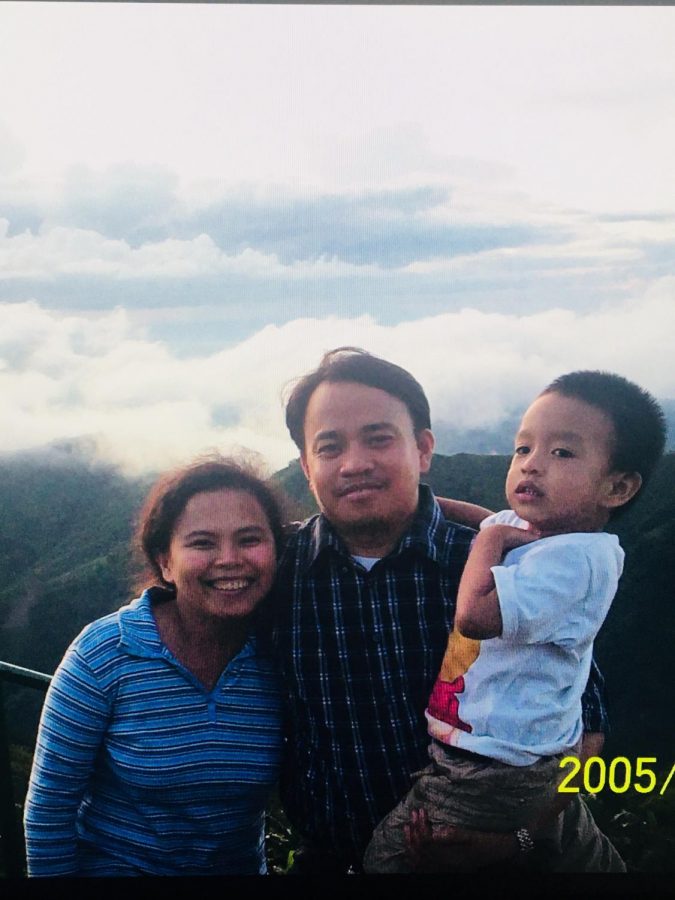There is No Place Like Home
Sophomore Sam Medallo opens up about living in Southeast Asia and the U.S.
Sophomore Sam Medallo sat cross-legged on the benches next to the office after school one day waiting for his father to pick him up after he got out of work. He had his hands folded on his lap looking at me waiting for my first question. His book bag was on the ground, and around us, people were rushing to catch their buses. As people passed us, Medallo would smile at everyone and wave to friends. His demeanor was happy. Once the chaos died down, he answered my first question.
“I moved around my whole life,” Medallo said. “There is mixed feelings to it. When you travel, you get to see all new places. It’s nice and you get to meet new people, but moving around too much [makes you] lose friends. You don’t really form that connection. As a child you can’t really improve your social skills. That is what I am struggling with now—interacting with people. I moved a lot when I was a young child. It’s just the way my life was.”
Although he moved from the Philippines at four years old, Medallo remembers bits and pieces of the stories his father told him. He says hearing the stories his father tells him makes him thankful for the things he has. Medallo remembers the lack of belongings and typhoons. He recalls the starvation, the homelessness and people doing whatever they could to survive.
“There is increased terrorism down south,” Medallo said. “The Philippines weren’t that dangerous place, but it is a third world country. It was hard living there. Everyone wanted to get out. You could see people—even young kids—running around the streets. They looked malnourished and they’d eat from garbage cans.”
Medallo would get sick a lot as well. Chicken pox was extremely common. The Philippines doesn’t have the same medical system as the U.S.
When his family left the Philippines and moved to Singapore, Medallo faced new challenges.
“[Singapore] was nice and rough at the same time,” Medallo said. “You get to walk around and see places. You can enjoy the food and culture. [But] it was rough because I got bullied at school. I got into a lot of fights. Competition, school and academics were tough.”
Every morning, Medallo and his classmates would march out into the courtyard and stand in a line and sing “Majulah Singapura,” the country’s national anthem. Teachers would carry batons and hit students with them if they were not “paying attention.” Often, teachers would pull children by their ears to keep them walking.
“I was a completely different person,” Medallo said. “I was constantly getting attacked at school, so I did everything to protect myself.”
Medallo’s experiences in Singapore caused him to have less trust in people, but he never lost faith. He looks at the value in people. Medallo believes in forgiveness. When Medallo tells his story, his tone isn’t bitter, his eyes aren’t angry. He just tells the truth.
“We’re all human and we make mistakes,” Medallo said. “My father once said that ‘you repeat the same mistakes until you learn.’ So I always used every mistake that I made as a way to learn. I might not be able to immediately learn from what I did, but it’s one step in the right direction. You can’t erase fire with fire. It’ll only make it bigger.”
Novi was his favorite place to live, but once he told me this he quickly backtracked; it’s not that he doesn’t like it in Troy, but like everywhere else, there are struggles.
“I still had to grasp that all these kids were friendly,” Medallo said. “As a kid only going through hard stuff and no one really being nice to me, I didn’t know how to react.”
While in Novi, on May 31, 2012, Medallo’s mother passed away from lupus. Medallo said his life back then was built on hardships, struggles and survival.
“At the end of the day, life isn’t fair,” Medallo said. “Sometimes you gotta suck it up and use the pain and suffering to become a better person and leave something inspirational. It’s not your past that defines you but what you do with that past for the outcome of the future.”
With moving around so often, Medallo struggled to call any of the countries he has lived in home.
“I consider home [as] my family, the people that I’ve met and the good memories,” Medallo said. “Family to me is people that I trust and the people that I really care about, which is everyone because I value every human life on this planet. Family to me is not just biological family; [it’s the] people who shape the world I live in.”
Your donation will support the student journalists of Troy High School - MI. Your contribution will allow us to print our work, purchase equipment and cover our annual website hosting costs.


